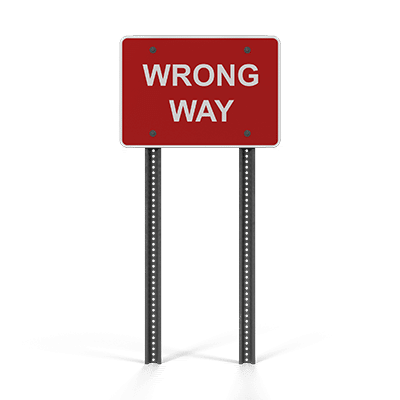Corporate officers and Piercing the Veil of Corporate Fiction

Specific requirements must be present for company officers to be accountable for company liabilities.
A corporation has a legal personality separate and distinct from those who run or operate it.
This means that, in general, the corporation’s liabilities are its own, not those of its directors, officer and employees.
A particular set of circumstances is required for those individuals to be answerable for corporate obligations.
Jurisprudence

An employee is not held liable for company obligations except if the company commits a patently unlawful act.
Basic is the rule in corporation law that a corporation is a juridical entity which is vested with a legal personality separate and distinct from those acting for and in its behalf and, in general, from the people comprising it. Following this principle, obligations incurred by the corporation, acting through its directors, officers and employees, are its sole liabilities. A director, officer or employee of a corporation is generally not held personally liable for obligations incurred by the corporation. Nevertheless, this legal fiction may be disregarded if it is used as a means to perpetrate fraud or an illegal act, or as a vehicle for the evasion of an existing obligation, the circumvention of statutes, or to confuse legitimate issues. This is consistent with the provisions of the Corporation Code of the Philippines, which states:
Sec. 31. Liability of directors, trustees or officers. – Directors or trustees who willfully and knowingly vote for or assent to patently unlawful acts of the corporation or who are guilty of gross negligence or bad faith in directing the affairs of the corporation or acquire any personal or pecuniary interest in conflict with their duty as such directors or trustees shall be liable jointly and severally for all damages resulting therefrom suffered by the corporation, its stockholders or members and other persons.
Solidary liability will then attach to the directors, officers or employees of the corporation in certain circumstances, such as:

There are 4 instances were a corporate officer is liable for a company’s obligations.
1. When directors and trustees or, in appropriate cases, the officers of a corporation: (a) vote for or assent to patently unlawful acts of the corporation; (b) act in bad faith or with gross negligence in directing the corporate affairs; and (c) are guilty of conflict of interest to the prejudice of the corporation, its stockholders or members, and other persons;
2. When a director or officer has consented to the issuance of watered stocks or who, having knowledge thereof, did not forthwith file with the corporate secretary his written objection thereto;
3. When a director, trustee or officer has contractually agreed or stipulated to hold himself personally and solidarily liable with the corporation; or
4. When a director, trustee or officer is made, by specific provision of law, personally liable for his corporate action.
Before a director or officer of a corporation can be held personally liable for corporate obligations, however, the following requisites must concur: (1) the complainant must allege in the complaint that the director or officer assented to patently unlawful acts of the corporation, or that the officer was guilty of gross negligence or bad faith; and (2) the complainant must clearly and convincingly prove such unlawful acts, negligence or bad faith.[1]
Note the point in the ruling of the Supreme Court concerning a corporate officer’s assent to a “patently unlawful act”.
What is a patently unlawful act of a corporation?

A patently unlawful act is act declared so by law.
“For a wrongdoing to make a director personally liable for debts of the corporation, the wrongdoing approved or assented to by the director must be a patently unlawful act. Mere failure to comply with the notice requirement of labor laws on company closure or dismissal of employees does not amount to a patently unlawful act. Patently unlawful acts are those declared unlawful by law which imposes penalties for commission of such unlawful acts. There must be a law declaring the act unlawful and penalizing the act.” (Emphasis provided)
Carag tells us that in order for an act to be deemed “patently unlawful”, it must be declared so by a law which imposes penalties for the commission of said act.
What follows is an extrapolation from Carag vs Carag
Breach of a civil contract is not, by itself, a patently unlawful act. No law declares it unlawful, and no law imposes penalties for it. Without more, the individual corporate officers cannot be held solidarily liable with the corporation. There is no ground to pierce the veil of corporate personality.

Breach of a civil contract is not a patently unlawful act.
Any liability found is only that of the corporation in civil breach.
Later Supreme Court cases support individuals’ freedom from liability
It is settled that in the absence of malice, bad faith, or specific provision of law, a director or an officer of a corporation cannot be made personally liable for corporate liabilities. In McLeod v. NLRC, we said:
To reiterate, a corporation is a juridical entity with legal personality separate and distinct from those acting for and in its behalf and, in general, from the people comprising it. The rule is that obligations incurred by the corporation, acting through its directors, officers, and employees are its sole liabilities.
This same principle was more recently upheld in Bank of Commerce vs. Marilyn P. Nite, G.R. No. 211535, July 22, 2015. In that case, the trial court had acquitted the President of the Bancap Corporation of a criminal estafa charge filed against her by the Bank of Commerce, but it held her personally and solidarily liable for Bancap Corp.’s P162 million obligation to the Bank.

The Supreme Court upheld the lower court’s decision that the president of Bancap was not liable for the company’s obligation.
On appeal to the Supreme Court, the President of Bancap was absolved of liability for the corporate obligation. Considering that the President had already been acquitted of criminal liability, the Court ruled that she could not then be held liable for the corporation’s civil obligation:
It is settled that the transaction between Bancom and Bancap is an ordinary sale. We give weight to the finding of both the trial court and the Court of Appeals that Bancap’s liability arose from its contractual obligation to Bancom. The trial court and the Court of Appeals found that Bancom and Bancap had been dealing with each other as seller and buyer of treasury bills from December 1992 until the transaction subject of this case on 25 April 1994, which was no different from their previous transactions. Nite, as Bancap’s President, cannot be held personally liable for Bancap’s obligation unless it can be shown that she acted fraudulently. However, the issue of fraud had been resolved with finality when the trial court acquitted Nite of estafa on the ground that the element of deceit is non-existent in the case. The acquittal had long become final and the finding is conclusive on this Court. The prosecution failed to show that Nite acted in bad faith. It is no longer open for review. Nite’s act of signing the Confirmation of Sale, by itself, does not make the corporate liability her personal liability.
The bottom line
To hold a director personally liable for debts of the corporation, and thus pierce the veil of corporate fiction, the bad faith or wrongdoing of the director must be established clearly and convincingly. Bad faith is never presumed. Bad faith does not connote bad judgment or negligence. Bad faith imports a dishonest purpose. Bad faith means breach of a known duty through some ill motive or interest. Bad faith partakes of the nature of fraud. In Businessday Information Systems and Services, Inc. v. NLRC, we held:

Corporate officers are not liable for money claims of discharged employees.
x x x A corporate officer is not personally liable for the money claims of discharged corporate employees unless he acted with evident malice and bad faith in terminating their employment. There is no evidence in this case that Locsin acted in bad faith or with malice in carrying out the retrenchment and eventual closure of the company (Garcia vs. NLRC, 153 SCRA 640), hence, he may not be held personally and solidarily liable with the company for the satisfaction of the judgment in favor of the retrenched employees. (Emphasis supplied)
In McLeod v. NLRC, the Court did not hold a director, an officer, and other corporations personally liable for corporate obligations of the employer because the second requisite was lacking. The Court held:
A corporation is an artificial being invested by law with a personality separate and distinct from that of its stockholders and from that of other corporations to which it may be connected.

Corporate officers are only liable when they have used the company to commit a patently unlawful act.
While a corporation may exist for any lawful purpose, the law will regard it as an association of persons or, in case of two corporations, merge them into one, when its corporate legal entity is used as a cloak for fraud or illegality. This is the doctrine of piercing the veil of corporate fiction. The doctrine applies only when such corporate fiction is used to defeat public convenience, justify wrong, protect fraud, or defend crime, or when it is made as a shield to confuse the legitimate issues, or where a corporation is the mere alter ego or business conduit of a person, or where the corporation is so organized and controlled and its affairs are so conducted as to make it merely an instrumentality, agency, conduit or adjunct of another corporation.
To disregard the separate juridical personality of a corporation, the wrongdoing must be established clearly and convincingly. It cannot be presumed.[2]
[1] Heirs of Fe Tan Uy vs. International Exchange Bank, G.R. No. 166282, February 13, 2013.
[2] Francisco vs. Mallen, Jr., G.R. No. 173169, September 22, 2010.






Good Reading;